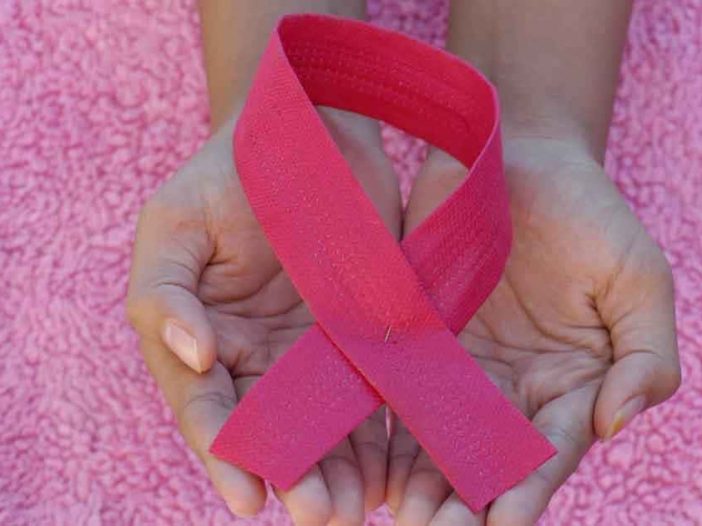
Breast cancer is a cancer of the breast cells. Breast cancer is the most frequently diagnosed cancer in women in the United States following skin cancer. Breast cancer in both men and women may occur, but in women, it is far more frequent.
Progress in the diagnosis and treatment of breast cancer has been funded significantly by awareness and research funds. The rate of survival of breast cancer has improved and the amount of death tobacco is constantly decreasing, mostly as a result of factors like early diagnosis, a new tailored care strategy and greater awareness. If you feel any mass in the breast then you should prefer breast cancer treatment.
Symptoms:
- Breast cancer signs and symptoms can include:
- a breast lump or stretch which feels different from the tissue around.
- Adjust the breast size, form, or look
- Skin shifts over the breast, for example
- A freshly reversed jerk
- Pigmentation, scaling, scaling or flattening of the surrounding skin of the nipple (areola) or breast skin
- Redness or pinching your skin like an orange skin over your breast
When do I see a cancer specialist?
You should appoint your doctor easily if you detect a lump or other changes in your bosom — even if a recent mammogram is normal.
Why is it so?
Doctors recognise that as such breast cells tend to develop in an irregular fashion, breast cancer takes place. These cells differentiate faster than healthy cells and build up, creating lumps or piles. Cells will migrate to your lymph nodes or other areas of the body (metastasize) through the breast.
Breast cancer starts in the milk-producing duct (invasive ductal carcinoma) most often with cells. It may also begin in the glands tissue known as the lobules or in other cells or tissues within the breast. Invasive carcinoma may also initiate breast cancer.
Hormonal, lifestyle and environmental factors defined by researchers may raise the risk of breast cancer. It is not clear, though, that some people who don’t have risk factors grow cancer and others who don’t. It is possible that a complex relationship between your genetic make-up and your climate can cause breast cancer.
Breast cancer inherited:
Physicians believe that about 5 to 10% of breast cancer is due to gene mutations inherited via a family generation.
Several inherited mutant genes have been identified that can increase the risk of breast cancer. The most famous is 1 (BRCA1) and 2 (BRCA2), all of which raise substantially the chances of breast and ovarian cancer.
Treatment of cancer:
Many considerations will affect the procedure, including:
- the cancer type and stage
- the human hormone sensitivity
- age, general health and social desires
The key options for recovery include:
Therapy of radiation:
- Operation
- Targeted biological or therapeutic treatments
- Therapy with Hormones
- Chemotherapy
Include the stage of cancer, other medical issues and personal choice of a person who determines the type of treatment they get. You may ask the doctor to do a blood exam to help detect special mutations in BRCA or other genes that are spread through the families whether you have a long family history of breast cancer or other cancers. Please contact your doctor to contact a geneticist who will study the history of your family health. A genetic psychologist may also explore the advantages, disadvantages and drawbacks of genetic testing to help you make common choices.
Factors of risk:
Anything that makes you more likely to develop breast cancer is a risk factor for breast cancer. However, one or more risk factors for breast cancer do not always mean you develop breast cancer. Many people with breast cancer have no other identified causes except people.
Factors related to elevated breast cancer risk include:
- As a woman. Women appear to grow breast cancer even more than men.
- Age is growing. When you get older, the chance of breast cancer rises.
- A medical history of problems in the breast. You have an elevated risk of breast cancer if you’ve had a breast biopsy with lobular in situ carcinoma (LCIS) or atypical breast hyperplasia.
- A personal breast cancer history. You are at higher risk of getting cancer in the other breast if you have breast cancer in one breast.
- Inherited genes which increase the risk of cancer. Any gene mutations may transfer from parents to children that raise the risk of breast cancer. BRCA1 and BRCA2 are the best-known gene mutations. These genes will increase the risk of breast cancer and other cancers significantly, but do not inevitably cause cancer.
- Exposure of radiation. You will be at risk of breast cancer if you undergo radiation therapies for the chest as a child or young adult.
- Adipose. Your chance of breast cancer rises with obesity.
- Start your time when you are younger. Your risk for breast cancer increases from the start of your time until your age 12.
- Start of older menopause. You are more likely to develop breast cancer after you have commenced menopause at an older age.
- Being the only one at the age of one. The risk of breast cancer could be raised in women who have delivered their first children at the age of 30.
